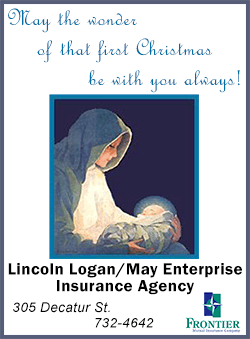|
 The topic was introduced by city treasurer Chuck Conzo who said
if the city was going to adjust their tax levy for 2015, it needed
to be done within the next few weeks. The topic was introduced by city treasurer Chuck Conzo who said
if the city was going to adjust their tax levy for 2015, it needed
to be done within the next few weeks.
He explained the city is permitted to increase its levy by up to 1.5
percent. However, the percentage figure is somewhat deceiving.
According to Conzo, while the city can use that percentage to figure
its levy, what is submitted to the county is an actual dollar
figure. The percentage then reported on the annual property tax bill
reflects what percentage of an individual tax bill will be going to
the city.
Conzo said that the increase for this year would amount to a total
of $29,960. He also indicated that changes in the tax rolls, with
some discounts expiring, and some property values going up, a 1.5
percent increase could equal as much as $43,000.
Over the past several years, the tax increase has been earmarked
solely for the police and fire pension funds.
 However, with the creation of the utility tax by the city, funding
of the pension funds is now coming from those dollars instead of
property tax. In addition, the percentage of the utility tax going
to the pensions has been figured so that the pension accounts will
be fully funded by the year 2040, which is required by state law,
without any additional funding from other sources.
Conzo told the council that he would recommend that if they raise
the levy at all, they increase it by only $20,000.
During the discussion, Mayor Keith Snyder asked that if the city
kept the tax the same as last year, what would the percentage rate
be? Conzo said the rate would show as 1.29 percent or less depending
again on property value assessments by the county.
Tom O’Donohue spoke saying that his understanding is that the
property tax increases have been going to the pensions, and now
those accounts are being funded by the utility tax. Therefore, he
didn’t see that the city should take the increase. He said the taxes
in Lincoln have been an issue in the past, and may have hindered
economic growth. He said, “One of the biggest problem for economic
development in our community is property taxes.” O’Donohue indicated
that he would like to see the city not increase its property tax.
[to top of second column] |

Snyder commented on this as well, saying that if the
city chose not to increase its share of the taxes. "It would be
doing our small part to help address the (high taxes) situation in
the city," he said.
He went on to say that the only problem was that with the city
operating under a tax cap, it would not be able to reclaim the lost
increase in a future year.
Snyder also wondered how freezing the tax at the 2014 rate would
impact the TIF district revenues. Conzo said he didn’t believe it
would have any impact at all.
Marty Neitzel agreed with Snyder saying that she felt freezing the
tax would be a good selling point for the city in promoting growth.
Melody Anderson said she was in favor of gaining revenues through
the taxes that are based on consumption. She noted that in those
cases, people who consume more pay more, which to her is fairer for
everyone.
As the discussions came to a close, nod of the head by several
aldermen seem to indicate that all would be in favor of freezing
this year’s property tax.
There must be a public hearing and a formal vote on the matter.
Conzo recommended those two actions take place on December 15th.
After the vote, the city will have until December 30th to file their
tax levy request with the county.
[Nila Smith]
 |